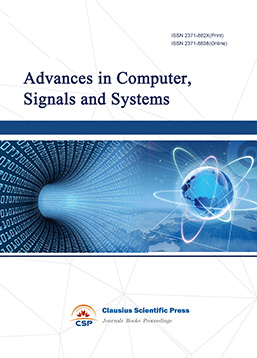Research on China's Postdoc Talent Profiling Based on Big Data
DOI: 10.23977/jaip.2022.050115 | Downloads: 12 | Views: 1756
Author(s)
Yuchen Wu 1, Ying Xiong 1, Yi Wang 1
Affiliation(s)
1 Chinese Academy of Personal Science, 110100, Beijing, China
Corresponding Author
Yuchen WuABSTRACT
The abundant talent information resources under the context of big data provide new opportunities for profiling of postdoctoral talents based on big data technology. The existing research on talent profiling carries out single-dimensional evaluation and measurement mostly based on limited information, and figures out some problems such as insufficient objectivity and incomplete evaluation and measurement, failing to meet China's prospective demand for labeling and selecting scientific talents in an all-round and efficient way. Talent profiling through information extraction (IE), big data association mining, artificial intelligence (AI), and other techniques can realize comprehensive and efficient labeling, selection and evaluation of talents based on the needs of different subjects, and thus can replace resumes, allowing employers to fully understand postdoctoral individuals and groups, overcome HR information asymmetry, leverage the prospective and guiding effect of talent introduction in China, and seize the initiative in global competition for talent.
KEYWORDS
Big Data, Postdoctoral Researcher, Talent ProfilingCITE THIS PAPER
Yuchen Wu, Ying Xiong, Yi Wang, Research on China's Postdoc Talent Profiling Based on Big Data. Journal of Artificial Intelligence Practice (2022) Vol. 5: 111-120. DOI: http://dx.doi.org/10.23977/jaip.2022.050115.
REFERENCES
[1] Wang Yuanzhuo, Jia Yantao, Liu Dawei, Jin Xiaolong and Cheng Xueqi. Open Web Knowledge Aided Information Search and Data Mining. Journal of Computer Research and Development, 2015, 52(2):456-474.
[2] Cooper A. The Inmates are Running the Asylum: Why High-tech Products Drive Us Crazy and How to Restore the Sanity. Sams Indianapolis, 2004.
[3] Li Wei, Xi Xiaotao et al. The Value, Foundation and Directions of Studies on Marketing Innovation in the Big Data Era. Science and Technology Management Research, 2014(18):181-184.
[4] Meng Wei, Wu Xuexia, Li Jing et al. Power User Potraits Based on Big Data Technology. Telecommunications Science, 2017(S1):23-28.
[5] Matei Zaharia, Reynold S. Xin, Patrick Wendell, et al. Apache spark: A Unified Engine for Big Data Processing. Communications of the Acm, 2016, 59(11):56-65.
[6] Shan Xiaohong, Zhang Xiaoyue and Liu Xiaoyan. Research on User Portrait Based on Online Review: Taking Ctrip Hotel as an Example. Information Studies: Theory & Application, 2018, 41(4):99-104,149.
[7] Eddy S R. Hidden Markov Models. Current Opinion in Structural Biology, 1996, 6(3): 361-365.
[8] Xia Jingbo, Wei Zekun, Fu Kai et al. Review of Research and Application on Hadoop in Cloud Computing. Computer Science, 2016, 43(11):6-11.
[9] Tseng H, Chang P-C, Andrew G, et al. A Conditional Random Field Word Segmenter for Sighan Bakeoff 2005. Proceedings of the Fourth SIGHAN Workshop on Chinese Language Processing, 2005.
[10] Hochreiter S, Schmidhuber J. Long Short-term Memory. Neural Computation, 1997, 9(8): 1735-1780.
| Downloads: | 16904 |
|---|---|
| Visits: | 608974 |
Sponsors, Associates, and Links
-
Power Systems Computation

-
Internet of Things (IoT) and Engineering Applications

-
Computing, Performance and Communication Systems

-
Advances in Computer, Signals and Systems

-
Journal of Network Computing and Applications

-
Journal of Web Systems and Applications

-
Journal of Electrotechnology, Electrical Engineering and Management

-
Journal of Wireless Sensors and Sensor Networks

-
Journal of Image Processing Theory and Applications

-
Mobile Computing and Networking

-
Vehicle Power and Propulsion

-
Frontiers in Computer Vision and Pattern Recognition

-
Knowledge Discovery and Data Mining Letters

-
Big Data Analysis and Cloud Computing

-
Electrical Insulation and Dielectrics

-
Crypto and Information Security

-
Journal of Neural Information Processing

-
Collaborative and Social Computing

-
International Journal of Network and Communication Technology

-
File and Storage Technologies

-
Frontiers in Genetic and Evolutionary Computation

-
Optical Network Design and Modeling

-
Journal of Virtual Reality and Artificial Intelligence

-
Natural Language Processing and Speech Recognition

-
Journal of High-Voltage

-
Programming Languages and Operating Systems

-
Visual Communications and Image Processing

-
Journal of Systems Analysis and Integration

-
Knowledge Representation and Automated Reasoning

-
Review of Information Display Techniques

-
Data and Knowledge Engineering

-
Journal of Database Systems

-
Journal of Cluster and Grid Computing

-
Cloud and Service-Oriented Computing

-
Journal of Networking, Architecture and Storage

-
Journal of Software Engineering and Metrics

-
Visualization Techniques

-
Journal of Parallel and Distributed Processing

-
Journal of Modeling, Analysis and Simulation

-
Journal of Privacy, Trust and Security

-
Journal of Cognitive Informatics and Cognitive Computing

-
Lecture Notes on Wireless Networks and Communications

-
International Journal of Computer and Communications Security

-
Journal of Multimedia Techniques

-
Automation and Machine Learning

-
Computational Linguistics Letters

-
Journal of Computer Architecture and Design

-
Journal of Ubiquitous and Future Networks


 Download as PDF
Download as PDF